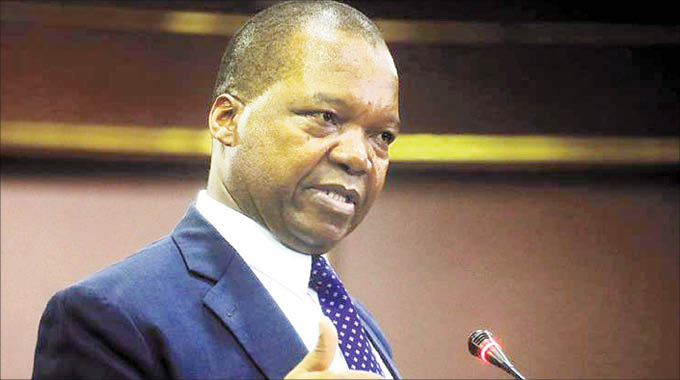5 years to full de-dollarisation . . . Appetite for foreign currency remains high

Prosper Ndlovu, Business Editor
THE Reserve Bank of Zimbabwe (RBZ) says the country has registered significant progress in embracing the use of the local currency since its adoption in June last year but expects complete de-dollarisation of the economy in five years.
Following the gazetting of Statutory Instruments 33 and 142 of 2019 that provided for the de-dollarisation framework from a 10-year long United States-dollar-dominated multiple currency system, RBZ Governor Dr John Mangudya yesterday said the monetary authority was impressed with the progress made so far.
He however, acknowledged that despite the de-dollarisation path which demands that all transactions be exclusively done in local currency (mono-currency), the appetite for foreign currency remains high with some businesses still pricing goods and services in forex. The country’s cost structure also largely remains indexed to the US-dollar with exchange rate fluctuations influencing pricing levels and inflation trends.
“The bank is encouraged by the positive de-dollarisation process that has been taking place in the country,” said Dr Mangudya in his 2020 first half Monetary Policy Statement.
“The bank believes that the macro-economic signals that include fiscal and monetary discipline, prospects of positive economic growth and lower inflation are improving to support a gradual de-dollarisation process within a timeframe of five years. This is in line with other countries’ experiences on de-dollarisation.”
The RBZ Governor however, said the local currency was regaining strength for transacting purposes, despite resistance by some market players, evidenced by the growing trading amounts which clocked a total ZW$459,6 billion from 189 million transactions for the full year 2019.
“These measurements of the proportion of the use of the local currency in the economy show that the country is on a right trajectory to de-dollarisation,” said Dr Mangudya.
“The Bank shall, therefore, continue to provide incentives to promote and defend the use of the local currency within the economy in order to support the de-dollarisation process.”
The Apex Bank assured the public that the use of free funds in Zimbabwe, which constitute about 30 percent of total export receipts, remains permissible as has always been the case.
“The unfettered or unrestrained use of free funds is in line with regional and international best practices as free funds are outside the exchange control territory of the country. Free funds play a catalytic role in enhancing confidence in the foreign exchange market and in promoting economic development,” said Dr Mangudya.
Free funds are made up of diaspora remittances, funds remitted into the country by international organisations, embassies, non-governmental organisations (NGOs), donations and any other funds realised by individuals from offshore activities.
“The Bank would therefore like to reassure all holders of free funds that their funds are very safe and secure in Zimbabwe. The same is true for all other foreign currency accounts and that the current export retentions are being maintained at their current levels,” the RBZ boss said.
“The Bank has, therefore, no appetite at all to tamper with the legal status of the public’s foreign currency accounts.”
Dr Mangudya further explained that allowing the use of free funds within the national economy for the payment of customs duties on selected products, paying for emergency passports, procurement of basic commodities such as food items and fuel under the direct fuel (DFI) scheme, “should not be misconstrued as going back to dollarisation”.
He said this must rather be understood “as a common good for the country” so as to promote the inflow of free funds from the diaspora and this position was necessary to buttress the confidence that is needed under the de-dollarisation process.
Dr Mangudya said the RBZ has made strides in clearing foreign currency legacy debts also known as blocked funds.
“Government, through the bank, is committed to orderly settlement of blocked funds – cash flows generated in Zimbabwe by foreign entities that could not be repatriated to foreign suppliers due to foreign exchange shortages – or commonly referred to as foreign exchange legacy liabilities,” he said.
“To date, Exchange Control has processed and validated blocked funds in an amount of US$1.2 billion from 730 applications out of 1080 requests.
“Of those processed, 299 transactions with a value of US$861 million were rejected for various reasons ranging from double-dipping to lack of supporting documentation.”
Dr Mangudya said the balance of 350 transactions with a value of US$457 million were being processed for finalisation by 29 February 2020. He explained that the validated blocked funds exclude the legacy foreign exchange obligations of US$361 million under the RBZ Debt Assumption Act.










Comments